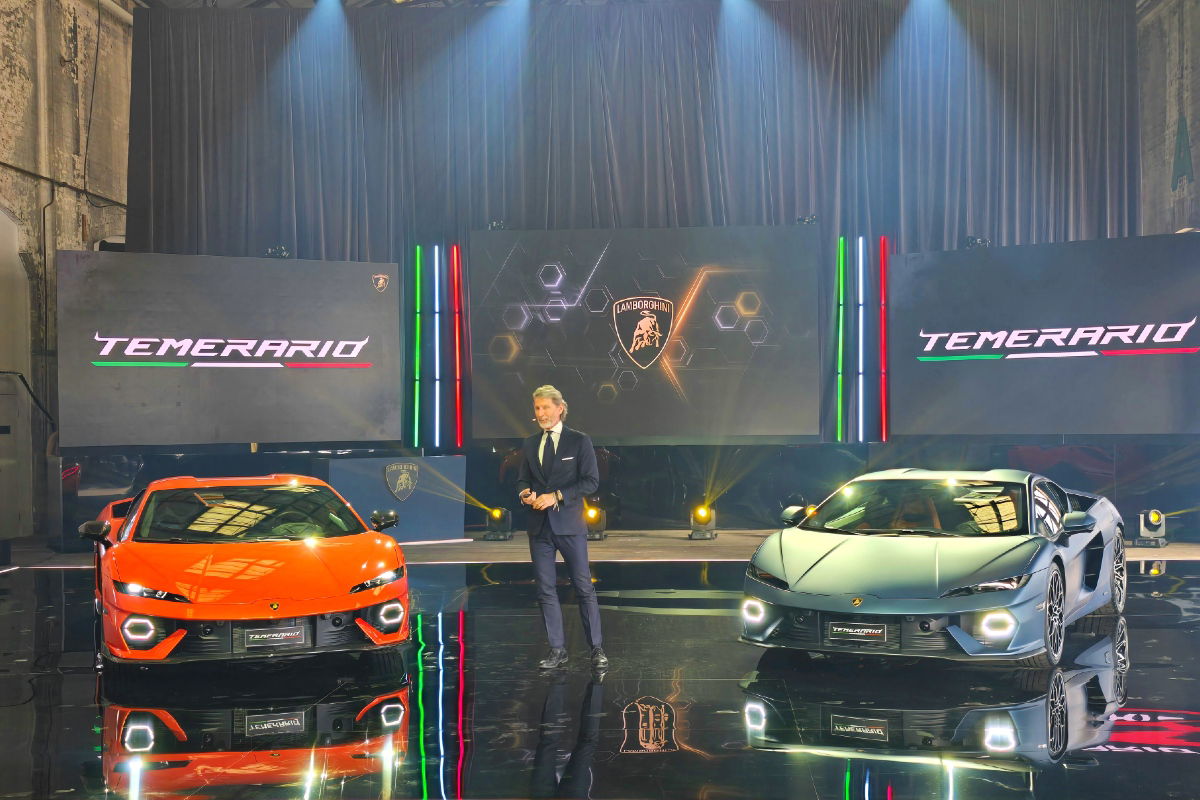
Lamborghini has just launched an all-new V8 engine in its Temerario supercar and it has no plans to ditch the petrol engine anytime soon – and hopefully never.
Lamborghini CEO Stephan Winkelmann was asked if he saw an end date for the internal combustion engine, amid the Italian firm’s own plans for an electric car, but made it clear he doesn’t think the brand should ever abandon the petrol engine.
“ No [I don’t see an end date], because I hope that there will be none,” Winkelmann said.
Electric vehicles may be popular with politicians, but in the real-world customers aren’t buying them at a fast enough rate to meet emissions targets. Thankfully there is an alternative, which can cut CO2 emissions and should be compatible with every internal combustion engine car already on the planet – synthetic fuel.

Winkelmann told Australian media, including Torquecafe, that synthetic fuels are the key to saving the internal combustion engine, especially Lamborghini’s preferred V12 and V8 engines. Sometimes referred to as eFuel, synthetic fuels are a liquid fuel that is produced with renewable energy in order to ensure it’s carbon neutral. Lamborghini sister-brand, Porsche is another big supporter of synthetic fuels and has invested in the multinational HIF Global and its pilot eFuels plant in Chile, Haru Oni.
Winkelmann is confident that this technology can work not only for Lamborghini but all other car brands, but believes governments around the world need to support the technology in order for it to reach enough volume to be adopted across the industry.
“Synthetic fuel is an opportunity for sure,” he said. “ Synthetic fuel would neutralize the CO2 emissions, so this would be good if we could have synthetic fuels after ‘35. The point will be the amount which will be at the disposal if the governments are, let’s say, pushing for the production of synthetic fuel, because today it’s very expensive and it’s a very low quantity.

“So if this is feasible, for sure, this will be a good opportunity to maintain internal combustion engines together with a plug-in hybrid system. And we have to see, we have to see, there is a chance, but I don’t see today that the industry is moving into that direction. Maybe when the European Union is making an announcement, there will be more, more push on this.”
Formula 1 is due to switch to synthetic fuel as part of its 2026 engine regulations, and using eFuels is a major part of the push for the return of V10 engines. Having the world’s most popular racing series using synthetic fuel should be a boost for the development and acceptance of eFuels as an alternative option to electrification.
In 2022 HIF Global announced plans to build a synthetic fuel production facility in Tasmania as part of a global plan to expand the volume of eFuel production.


















Discussion about this post